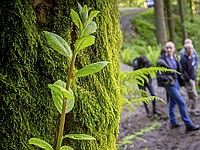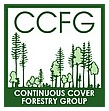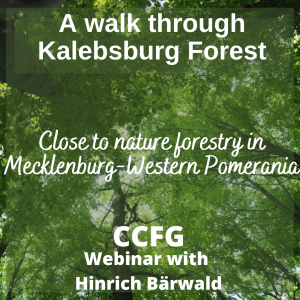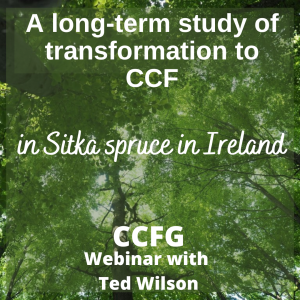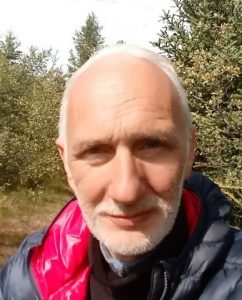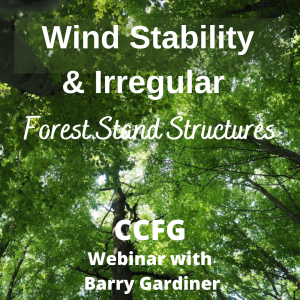CCFG will be hosting their next webinar – Developing permanent irregular forest structures: Lessons from Faskally Forest
with Andrew Cameron, Thursday 29th June 2023 4-5pm
This online event is hosted by CCFG featuring Andrew Cameron who will deliver a 30 minute presentation on this topic. This will be followed by a question and answer session for participants.
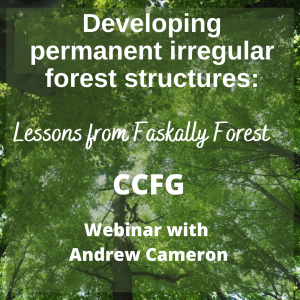
The Faskally Forest transformation was established in 1953 by Prof Mark Anderson of Edinburgh University with the aim of creating a permanent irregular forest based on European plenter stands. The original forest dates back to the early part of the twentieth century as a planted mixture of Norway spruce, Scots pine, European larch, Douglas fir, and European beech. At the start of the transformation in the 1950s, gaps created in the canopy were established using a combination of natural regeneration and planting of predominately shade/semi-shade-tolerant Douglas fir, Norway spruce, western hemlock, and European beech, and smaller proportions of shade-intolerant Scots pine, European larch, and silver birch. The study at this time was primarily viewed as a learning process to determine what does and does not work.
Records of the study from the early 1960s to the late 1980s are sparse, although some input into the area had taken place over this period. Increased interest in irregular forestry from the late 1980s saw a return to more intensive management of the site, and by the early 1990s the area was managed under the selection system.
A one hectare permanent sample plot was established in 1997 by the University of Aberdeen to study the latter stages of the transformation. Complete inventories of the sample plot were carried out at six year intervals starting in 1997 and subsequently in 2003, 2009, 2015, and 2021. In this seminar, Andrew will present an overview of the study spanning a period of almost 25 years. It will describe the development of stand structure and species composition and contrast a range of stand metrics with data from established Continental plenter forests.
Andrew Cameron is a senior lecturer in the Institute of Biological and Environmental Sciences at the University of Aberdeen. His career has spanned practical forest management, research, and education. His forest management experience started with the Forestry Commission at Cowal Forest District in Argyll before moving to North York Moors Forest District in North Yorkshire.
He returned to the University of Aberdeen in 1989 to lecture in silviculture and forest planning. His research interests include how wood properties are influenced by silviculture and genetic selection, transformations of even-aged stands into irregular structures, use of alternative productive species, and the impact of climate change on forests.
He has advised governments in Holyrood and Westminster on various aspects of forest policy. He produced a report for the COP26 conference in Glasgow in 2021 on the importance of productive forests in climate change mitigation and in reducing natural and semi-natural forest loss. He has recently made presentations at three Westminster Parliamentary committees on forest expansion and climate change. He has over 80 peer reviewed publications.
IF YOU WOULD LIKE TO ATTEND YOU CAN BOOK YOUR TICKET HERE

